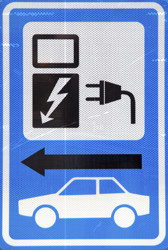Electric vehicles charging ahead
Widespread market uptake of hybrid and all-electric vehicles, further considered together as electric vehicles requires careful consideration of the future operation of current electric power systems. Understanding and comparing the impact of such integration given uncontrolled conditions through a careful framework was the purpose of the EU-funded project 'Mobile energy resources in grids of electricity' (MERGE)(opens in new window) . Scientists considered the relevant infrastructure including charging concepts, smart metering and communication technologies. Advanced simulation tools were then developed to assess the technical, economic and environmental aspects of electric vehicle integration in a holistic way. The study included analysis of steady-state and dynamic behaviours, the use of intermittent renewable energy resources and system stability and restoration schemes. Further, researchers considered regulatory issues, business models and market impact. Outcomes enabled the team to formulate several concepts for management of large-scale electric vehicle integration including business models and communication schemes. Partners concluded that, while no significant technical problems are expected until 2020 regardless of the charging strategy adopted, this is not the case by 2030. Development of an optimised and standardised charging infrastructure and planned regulatory framework will be necessary to avoid costly investments in network reinforcements. However, scientists emphasised that vehicle owner conformity should always be voluntary, highlighting the need for appropriate incentives. Researchers concluded with policy and regulatory recommendations for the present, intermediate- and long-term integration of electric vehicles. MERGE has provided the tools necessary to evaluate the operational issues associated with widespread market uptake of electric vehicles. Optimising integration will reduce technical and economic problems in the near future for maximum positive impact. Use of electric vehicles should reduce emissions and enhance quality of life and EU competitiveness in a growing global market.







